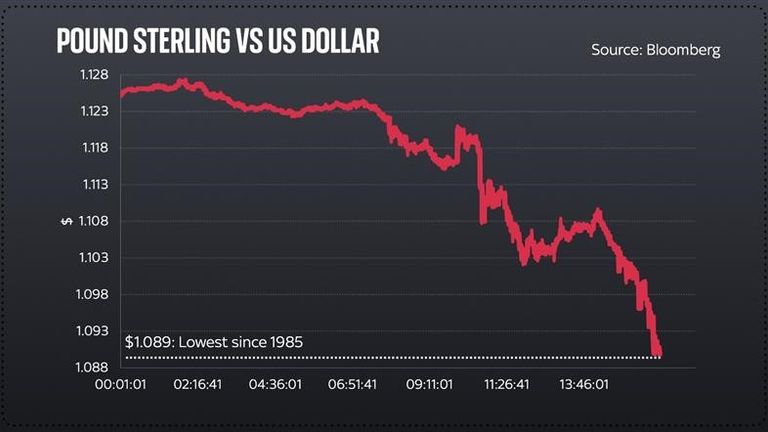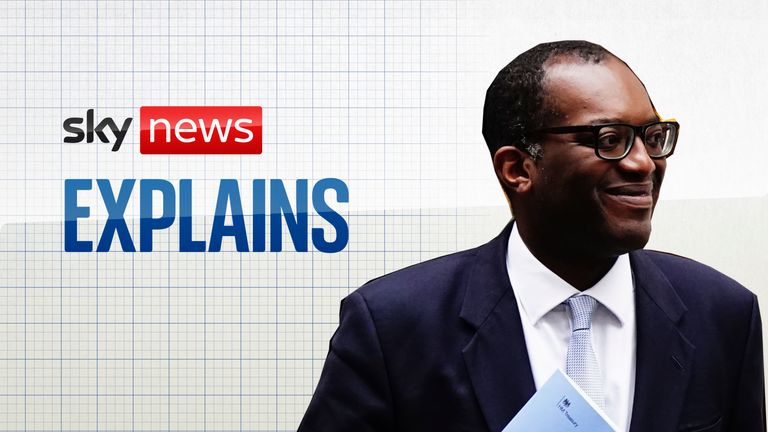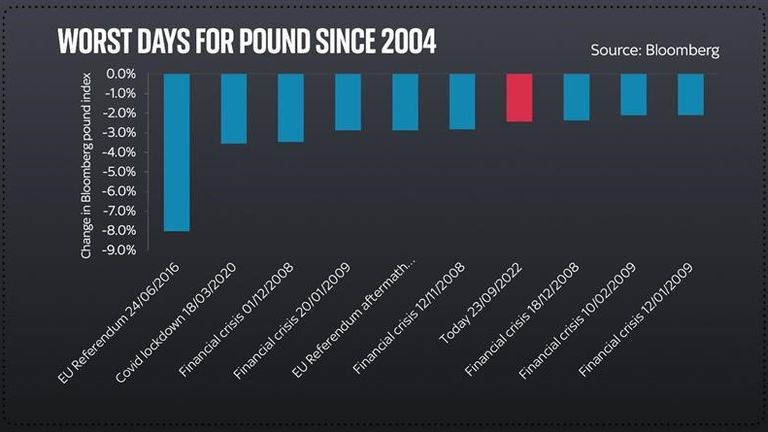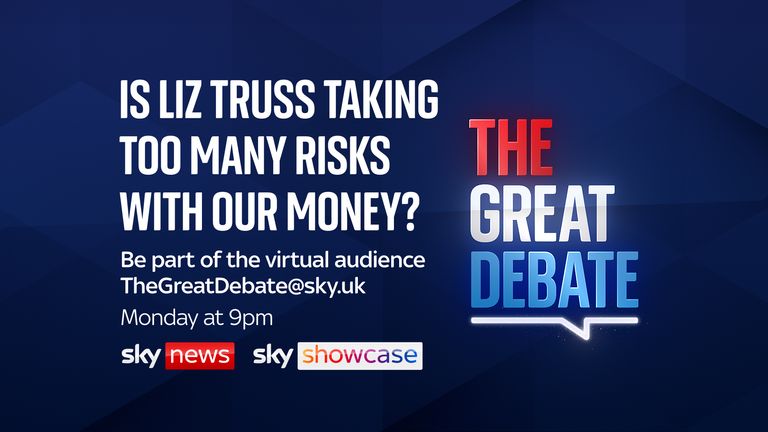This article was supposed to be about something else.
It was meant to be a thoughtful look at whether or not this mini-budget will deliver the growth it promised.
It had to be a question of whether it made sense to borrow so much money to finance tax cuts and if this economic bet (for a bet it is) will actually work.
And in one respect it’s still all of those things, but in most respects it’s the extraordinary reaction of the financial markets.
Stamp duties, energy bills and liquor duties – key announcements in the mini budget
I can’t remember another tax event that provoked such a reaction: the hammer very hard; yields on gilts (the government’s cost of borrowing) have risen more than on any other day in modern records; falling stock markets and currency markets pointing to a painful rise Bank of England interest rates In the coming months.
It’s possible to dismiss all of this as the moan of the men in gray suits, except it matters.
Think about it for a moment: the British government has just committed to borrow huge sums to finance a panoply of tax cuts. He did so in the hope that it will generate additional growth, taking Britain’s disappointing productivity trajectory to a new level.
There is a certain logic to this, and we can wonder whether today mini budget had the right kind of reforms, but what matters even more than all that is being able to borrow all that money, which in turn comes back into those international capital markets.
And the message from these capital markets is not encouraging. The reason government bond yields have risen so strongly is because investors think we are a riskier proposition than we were in the morning. They want to charge us higher interest rates the same way any lender does with a heavily indebted borrower.
But the direct result of this is that in the hours that followed Kwasi Kwarteng sitting down, those hundreds of billions of pounds of borrowed money instantly became much more expensive.
The fall of the pound is perhaps more worrying. Don’t get me wrong: we’ve had a lot of tough days for the pound before, and that pales in comparison to the night of the EU referendum.
We survived this – even though the pound never recovered – so why won’t we get rid of this?
And indeed, in the coming days, the pound may well rally and things will look a little less depressing.
Even so, consider what these currency moves mean: there are plenty of investors who are pulling their money out of this country, deciding not to allocate money to the UK, pulling back rather than diving.
If these investors were excited about Britain’s growth plan, you’d expect them to want to be part of it; you would expect them to start allocating cash to UK investments; instead, the opposite seems to be happening.
The verdict, in sum, is not particularly encouraging. No other budget in modern times has had such a reaction. Perhaps the closest analogy is the budget to which this one has already been compared: Anthony Barber’s 1972 budget.
It was another attempt to stimulate economic growth a few years before an election; it ended badly, with a monetary and budgetary crisis, and skyrocketing inflation two digits.
But in some ways, the territory is very different today from the 1970s. For one thing, the pound is floating happily while in the early 1970s it was teetering at the end of the Bretton Woods era.
Indeed, you could argue that the current fall in sterling is a mark of success: when times change, our currency adapts. And another difference is that the Treasury no longer decides interest rates; these are set up on the other side of town by the independent Bank of England.
But here, again, things get uncomfortable. The bank has a duty to try to ensure financial stability. He’s the keeper of the pound.
If the pound sterling continues to fall, it is not impossible that the bank intervenes with an increase in interest rates. Some economists think it could happen as early as next week; indeed, it is pretty much priced in by the money markets.
These markets are betting on interest rates reaching 5.5% next year. That’s almost a full percentage point higher than they expected before Mr Kwarteng got up.
Learn more about the mini-budget:
How much stamp duty will owners pay now?
Use our tax shift calculator to see how much you’ll save
The top 1% are winners in the mini-budget
Interest rates at these levels would be higher – once adjusted for people’s mortgage debt – than anything we’ve seen since the late 1980s, when the housing market was heading for the biggest crash in modern times.
This is not a happy precedent, but it is nevertheless what the markets are now betting on.
The next few days could be chaotic. The hope is that the pound will recover in the coming weeks, but there is also a chance that it will continue to decline. It’s not a crisis yet. But it doesn’t look particularly good.
Click to subscribe to Sky News Daily wherever you get your podcasts
#crisis #doesnt #good #Chancellors #mini #budget #sees #pound #plummet #prompts #extraordinary #reaction #financial #markets










